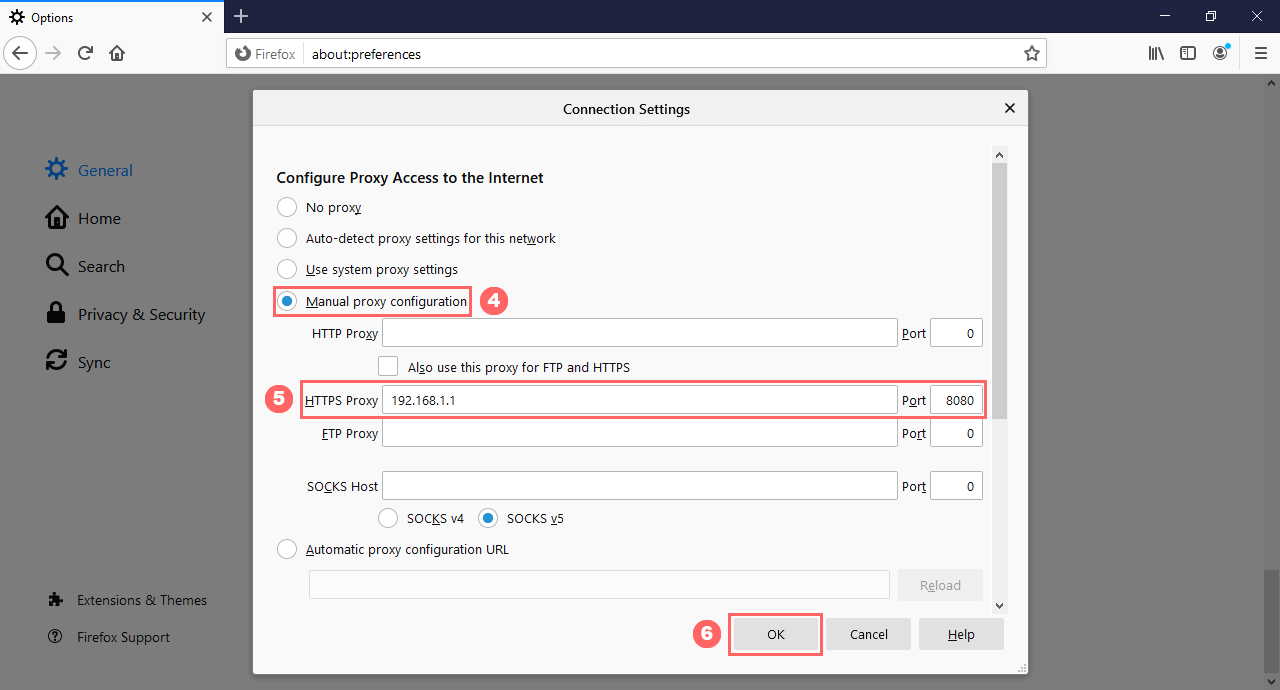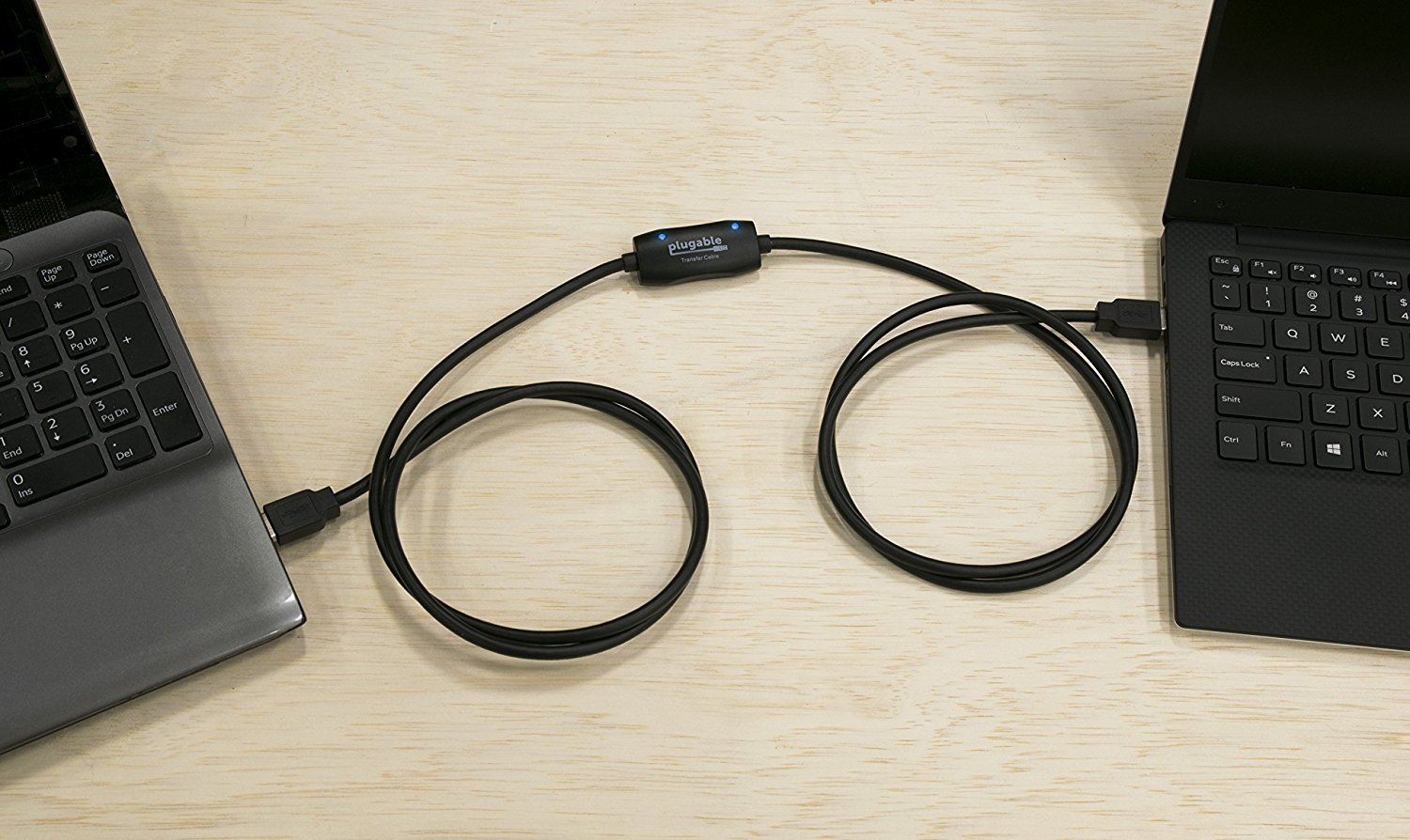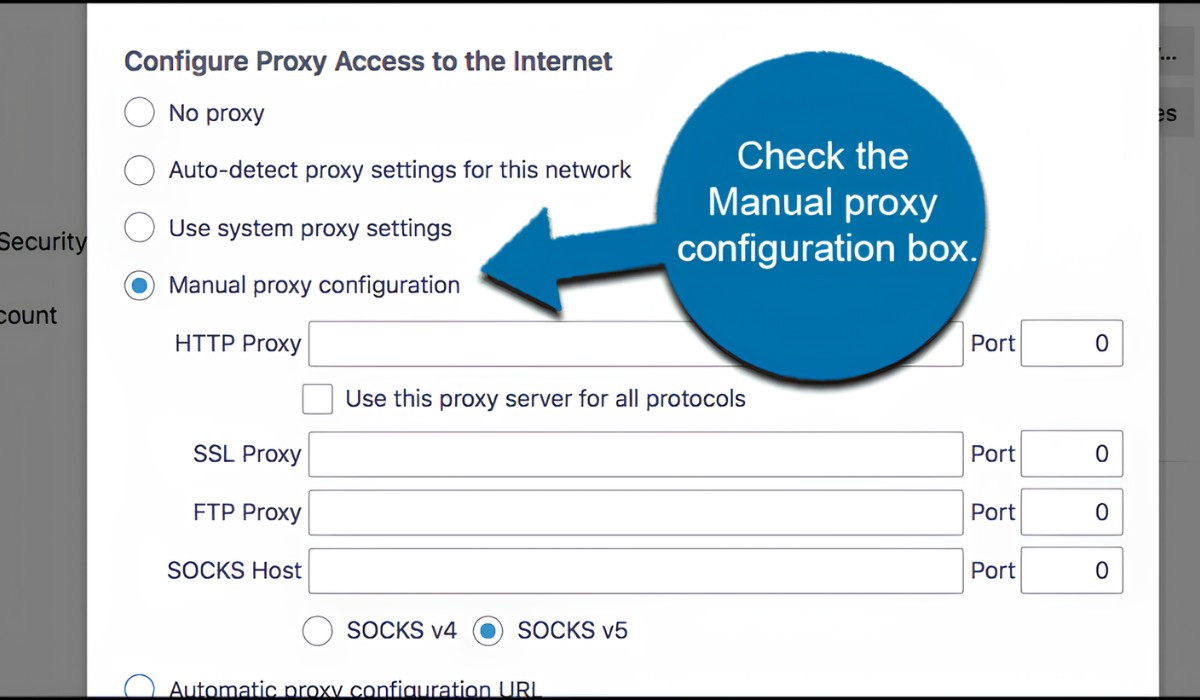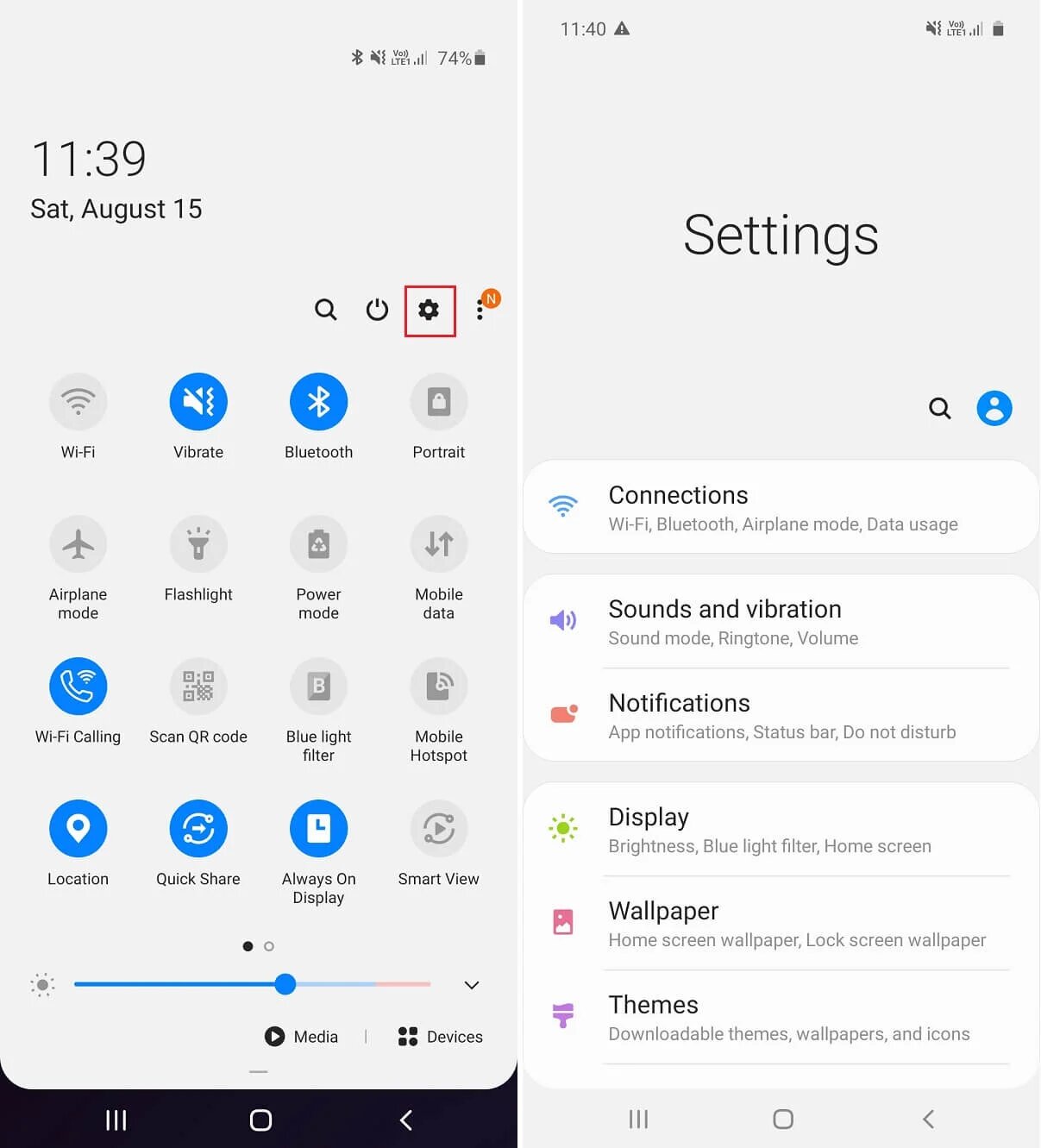Introduction
Welcome to the world of proxy servers! In today’s digital age, online privacy and security have become paramount. Whether you want to access geo-blocked content, protect your personal information, or enhance your browsing speed, a proxy server address can be an invaluable tool. But what exactly is a proxy server address, and how does it work?
A proxy server address acts as a intermediary between your device and the internet. It intercepts all your internet requests and forwards them on your behalf, masking your true IP address and providing you with a different one. This not only protects your identity but also allows you to bypass certain restrictions and enjoy a more secure online experience.
But the benefits of proxy server addresses don’t stop there. They come in different types and offer various advantages depending on your needs. From web proxies to VPNs, each type has its own features and capabilities. In this article, we’ll explore the different types of proxy server addresses, discuss their benefits, and provide tips for using them safely.
So, whether you’re a casual internet user looking to watch region-restricted content or a business professional wanting to secure your online activities, understanding proxy server addresses is essential. Join us as we dive into the world of proxy servers and discover how they can elevate your online experience to new heights.
What Is a Proxy Server Address?
A proxy server address is a unique identification assigned to a proxy server. A proxy server acts as an intermediary between your device and the internet, allowing you to access websites and online services while masking your identity and location. The proxy server address is used to redirect your internet traffic, encrypt your data, and provide you with a different IP address than your own.
When you connect to the internet through a proxy server, your device sends all its requests to the proxy server, which then forwards them to the desired websites on your behalf. This helps in maintaining anonymity as the websites only see the proxy server’s IP address instead of your actual IP address.
Proxy server addresses can come in various forms, such as IP addresses or domain names. They enable you to configure your device’s network settings to redirect your internet traffic through the proxy server. By doing so, you can bypass certain restrictions, access geo-blocked content, and improve your online privacy and security.
Moreover, proxy server addresses can be setup on different levels. For example, you can set up a proxy server address directly on your device, such as a computer or smartphone, or you can configure the proxy server at the network level, such as on a router or firewall. This allows you to apply the proxy settings to all devices connected to the network.
By utilizing a proxy server address, you can efficiently manage and control your internet traffic. Whether you’re a regular internet user, a business owner, or a cybersecurity enthusiast, understanding how proxy server addresses work is crucial in taking advantage of the benefits they offer.
How Does a Proxy Server Work?
A proxy server acts as a middleman between your device and the internet. It receives your internet requests, processes them, and then sends them on your behalf to the desired website or online service. But how exactly does a proxy server work?
When you connect to the internet through a proxy server, you first need to configure your device’s network settings to redirect your internet traffic through the proxy server. This can be done by entering the proxy server address and port number in the network settings of your device.
Once the proxy server settings are configured, every time you browse the web, send an email, or access any online service, your requests are intercepted by the proxy server. The proxy server then evaluates the request and performs various actions depending on its purpose and configuration.
One of the key functions of a proxy server is to mask your identity and location. For example, if you are located in New York and connect to a proxy server in London, the websites you visit will see the IP address of the proxy server in London instead of your actual IP address. This helps in bypassing geographical restrictions and accessing content that is otherwise unavailable in your location.
In addition to providing anonymity, proxy servers can also offer caching capabilities. When a proxy server receives a request for a certain web page, it checks if it has a cached copy of that page. If it does, it will serve the page directly from its cache, which can significantly speed up your browsing experience.
Furthermore, proxy servers can be configured to filter and block certain types of content. This can include blocking access to specific websites, filtering out malicious content, or restricting access to certain types of files. This makes proxy servers a useful tool for enforcing internet usage policies in schools, businesses, or other organizations.
Overall, the functioning of a proxy server is based on intercepting, evaluating, and forwarding internet requests on behalf of the user. By utilizing a proxy server, you gain control over your internet traffic, enhance your privacy and security, and unlock access to a wider range of online content.
Types of Proxy Server Addresses
Proxy server addresses come in different types, each offering unique features and capabilities. Understanding these types can help you choose the right proxy server address for your specific needs. Let’s explore some common types of proxy server addresses:
1. HTTP Proxy: This type of proxy server is used for handling HTTP traffic. It can be configured on your device or browser settings and is suitable for basic web browsing.
2. HTTPS Proxy: Similar to HTTP proxies, HTTPS proxies focus on handling secure HTTPS traffic. They provide an extra layer of security by encrypting your data when transmitting it between your device and the proxy server.
3. SOCKS Proxy: SOCKS (Socket Secure) proxies are versatile and can handle various types of internet traffic, including TCP and UDP. They are often used for activities such as torrenting or online gaming.
4. Web Proxy: As the name suggests, web proxies function specifically for web browsing. They are accessed through a website or a web-based interface, allowing you to access restricted websites without configuring your device’s settings.
5. Transparent Proxy: Transparent proxies are configured at the network level and do not require any specific settings on your device. They intercept your internet traffic transparently, without altering your IP address. They are commonly used for content filtering and caching.
6. Reverse Proxy: Unlike other types of proxies that work on behalf of clients, reverse proxies act on behalf of servers. They receive requests from clients and forward them to the appropriate web server, hiding the server’s true identity.
7. VPN: While not strictly a proxy server address, a Virtual Private Network (VPN) functions similarly by routing your internet traffic through a secure server. It encrypts your data and provides you with a new IP address, ensuring privacy, security, and bypassing restrictions.
Each type of proxy server address has its own advantages and use cases. Consider your specific requirements and choose the type that best suits your needs. Whether you want to access blocked content, enhance your online security, or improve your browsing speed, there’s a proxy server address that fits your requirements.
Benefits of Using a Proxy Server Address
Using a proxy server address offers a range of benefits that can enhance your online experience. Whether you’re concerned about privacy, security, or accessing restricted content, proxy servers can provide valuable advantages. Let’s explore some of the key benefits of using a proxy server address:
1. Enhanced Privacy: Proxy servers help protect your privacy by masking your IP address. When you browse the internet through a proxy server, websites see the proxy server’s IP address instead of your own, adding an extra layer of privacy and anonymity.
2. Access Geo-Restricted Content: Proxy servers allow you to bypass geographic restrictions and access content that is otherwise unavailable in your region. By connecting to a proxy server in a different location, you can unblock websites, streaming services, and other online platforms.
3. Improved Security: Proxy servers offer additional security measures by encrypting your data between your device and the server. This helps protect your sensitive information, such as login credentials or financial details, from potential hackers or malicious actors.
4. Faster Browsing Speed: Proxy servers with caching capabilities can significantly improve your browsing speed. When a proxy server caches web pages, it stores them locally, allowing for quick retrieval and reducing the time it takes to load websites.
5. Content Filtering: Proxy servers can be configured to filter and block certain types of content, such as malicious websites, adult content, or social media sites. This is particularly useful for organizations that want to enforce internet usage policies or protect users from potentially harmful content.
6. Load Balancing: In corporate environments, proxy servers can be used for load balancing. By distributing network traffic across multiple servers, proxy servers help ensure optimal performance, prevent server overload, and improve overall efficiency.
7. Anonymity: Proxy servers offer a level of anonymity by decoupling your online activities from your identity. They prevent websites and online services from collecting information about you, protecting your personal data.
Whether you’re an individual user or a business, leveraging the benefits of a proxy server address can greatly enhance your online experience. From safeguarding your privacy to accessing geo-blocked content, proxy servers provide a versatile and valuable solution.
Choosing the Right Proxy Server Address
With numerous options available, choosing the right proxy server address can be a daunting task. It’s important to consider your specific needs and requirements to ensure that you make the most suitable choice. Here are some factors to consider when selecting a proxy server address:
1. Type of Proxy: Determine the type of proxy server that aligns with your purpose. If you primarily require web browsing, a web proxy may be sufficient. However, if you need to handle various types of traffic or prioritize security, an HTTPS or SOCKS proxy might be more suitable.
2. Geographic Location: Consider the geographic location of the proxy server. Depending on your objectives, you may want a proxy server located in a specific region to bypass regional restrictions or access localized content.
3. Reliability and Speed: Look for a proxy server address with a reliable and fast connection. It’s crucial to ensure that the proxy server provider offers excellent uptime, minimal downtime, and high bandwidth to avoid interruptions or slow browsing experiences.
4. Security Features: If data security is a concern, choose a proxy server address that offers encryption capabilities and robust security protocols. This will safeguard your sensitive information from potential threats and protect your privacy.
5. Compatibility: Ensure that the proxy server address is compatible with your device or application. Some proxy servers work at the network level, while others require specific browser or device configurations. It’s important to confirm compatibility before making a decision.
6. Cost: Consider the cost associated with using a proxy server address. Some proxy servers are available for free, but often with limitations in terms of speed, reliability, or features. Paid options typically offer better performance and additional features, so weigh the costs against the benefits.
7. User Reviews and Reputation: Research the reputation of the proxy server provider. Read user reviews, check ratings, and gather feedback from reliable sources to gauge the provider’s track record in terms of service quality, customer support, and user satisfaction.
By considering these factors, you can select a proxy server address that aligns with your specific requirements, whether it’s for personal use or business needs. Remember, choosing the right proxy server address is crucial for experiencing the full benefits of enhanced privacy, security, and accessibility.
Tips for Using Proxy Server Addresses Safely
When utilizing proxy server addresses, it’s important to prioritize safety and security. By following these tips, you can ensure a secure and protected browsing experience:
1. Choose a Reputable Proxy Server: Opt for proxy server addresses from trusted and reputable providers. Look for providers that have a strong track record in terms of security measures, privacy policies, and customer feedback.
2. Check for Encryption: Select a proxy server address that offers encryption capabilities. Encryption adds an extra layer of security by encrypting your data when it’s transmitted between your device and the proxy server, safeguarding it from potential hackers or eavesdroppers.
3. Regularly Update Your Proxy Server: Keep your proxy server software up to date. Regular updates often include necessary security patches and bug fixes that help protect against potential vulnerabilities.
4. Avoid Inputting Sensitive Information: Exercise caution when using proxy servers for activities that involve sensitive information, such as online banking or entering personal details. Stick to trusted connections or consider disconnecting from the proxy server momentarily for such activities.
5. Use Secure Protocols: Whenever possible, choose proxy server addresses that support secure protocols, such as HTTPS or SOCKS. These protocols encrypt your data during transmission, providing an added layer of protection.
6. Beware of Phishing Attacks: Be vigilant against phishing attacks that may target proxy server users. Phishing emails or websites may attempt to trick you into providing your login credentials or sensitive information. Always verify the authenticity of any requests before interacting with them.
7. Monitor Data Usage: Keep an eye on your data usage when using a proxy server address. Unusual or excessive data consumption may indicate malicious activities or compromised proxies. If you suspect any issues, switch to a different proxy server address or contact your provider for assistance.
8. Use Antivirus and Firewall Software: Ensure that your device has up-to-date antivirus and firewall software installed. This helps protect against malware, viruses, and other security threats that may be encountered while using proxy server addresses.
By following these tips, you can maximize the safety and security of your online activities when using proxy server addresses. Remember, staying informed and proactive is key to maintaining a protected browsing experience.
Conclusion
Proxy server addresses provide a range of benefits, from enhanced privacy and security to accessing geo-restricted content. They act as intermediaries between your device and the internet, redirecting and masking your internet traffic to provide you with a more secure and versatile online experience.
By using a proxy server address, you can protect your identity, bypass regional restrictions, improve browsing speed, and enforce content filtering policies. Whether you’re an individual looking to maintain online privacy or a business owner wanting to optimize network performance, proxy servers offer valuable solutions.
When choosing a proxy server address, consider the type of proxy server, its geographic location, reliability, speed, security features, compatibility, and cost. By making an informed decision, you can ensure that the proxy server address you choose aligns with your specific needs.
Furthermore, to use proxy server addresses safely, follow best practices such as choosing reputable providers, using encryption and secure protocols, avoiding inputting sensitive information, and staying vigilant against phishing attacks. Regularly update your proxy server software and monitor data usage for any issues.
In summary, proxy server addresses are powerful tools that can enhance your online experience, providing increased security, privacy, access to restricted content, and improved browsing speed. By understanding how proxy servers work and implementing them effectively, you can unlock a new level of control and protection in your online activities.

























